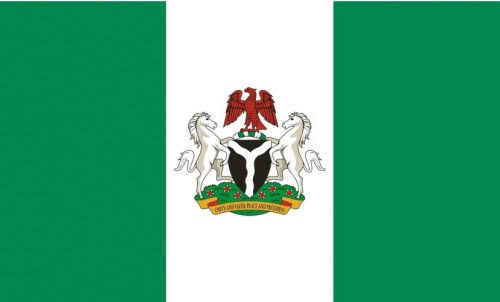
Hauwa Ali
It was just after midday, when I stumbled into a conversation at a Lagos café. Two young men were deep in debate. One, an entrepreneur trying to get his startup off the ground, vented his frustration over constant power cuts and a sluggish economy. The other, a recent returnee from the UK, interrupted him with a warning:
“Bro, you can’t keep talking about Nigeria like it’s already dead. If we don’t believe in it, who will?”
That line stuck with me.
We all know Nigeria has problems—big ones. Electricity shortages, corruption, insecurity, you name it. But here’s the thing: when Nigerians themselves, at home and abroad, spend so much time bashing the country, it does more harm than good.
This isn’t about ignoring the issues. It’s about realizing that every time we trash Nigeria in public—on social media, in conversations, even in passing comments—we’re reinforcing a story about the country that makes it harder for things to get better.
Take the recent spat between Reno Omokri and Peter Obi. Obi, frustrated by Nigeria’s power problems, compared us to Tanzania, praising how they managed to shut down hydro stations because they had too much electricity. Omokri fired back with hard numbers: Nigeria’s electricity supply has increased by 12.3% recently, while Tanzania’s dropped due to drought.
Sure, Obi’s frustration resonates with a lot of us. But Omokri’s point hits home: when you constantly paint Nigeria as a failure, you’re not just venting—you’re feeding a global narrative that says, “This place is hopeless.” And that’s dangerous.
When we criticize Nigeria—especially in broad, sweeping terms—it affects more than just our morale. It affects how the world sees us.
Foreign investors, business partners, and tourists don’t just look at official stats. They read the news, watch the viral videos, and hear what Nigerians themselves say. If all they hear is, “Nigeria is a failed state,” why would they bring their money, their ideas, or their opportunities here?
Just look at how Estonia rebranded itself from a forgotten corner of Europe into a digital powerhouse. Or how Costa Rica positioned itself as a green, peaceful, forward-thinking country, attracting tourists and investors. Even closer to home, Ghana is telling its own story of democracy and growth, enhancing its standing in Africa and globally.
When we constantly trash Nigeria, we’re shooting ourselves in the foot. We make it harder for entrepreneurs to get funding, discourage tourists, and make life harder for Nigerians abroad trying to prove they’re serious professionals.
A Personal Story: Temi’s Struggle and Breakthrough — Temi, a young Nigerian fashion designer, spent years battling with power outages, inconsistent supply chains, and crushing bureaucracy. At one point, she almost gave up, believing her dreams of running a global fashion brand were impossible in Nigeria.
But something shifted. Instead of complaining, she doubled down—learning how to work with local artisans, investing in solar energy for her workshop, and showcasing her designs online. Today, Temi’s brand is recognized across Africa and Europe. She tells me, “If I had listened to all the negativity, I would have packed my bags years ago. But I realized complaining wouldn’t change anything. The building would.”
Her story isn’t unique. Across Nigeria, countless young people like Temi are fighting back against the odds, determined to carve out their place in the world.
But here’s the kicker. When the narrative is overwhelmingly negative, it takes a psychological toll. Young Nigerians grow up believing success only happens elsewhere. It creates a brain drain and feeds hopelessness.
I’ve seen it firsthand—bright, talented Nigerians, convinced their dreams aren’t possible here. And who can blame them, when so much of the conversation focuses on what’s broken rather than what’s possible?
Let’s be clear: criticism is necessary. We should call out corruption, mismanagement, and injustice. But we should also spotlight the wins—like the fact that the Zungeru Dam is about to add 700 megawatts to our grid, or that more Nigerian households are gaining access to electricity.
Every country has struggles. Japan rebuilt itself into a global powerhouse, using resilience and creativity. Thailand is leveraging its culture to draw investment and visitors.
We need to do the same. We need to shift from hopeless complaints to constructive conversations.
Here are a few reminders for all of us:
“Be the change you wish to see in the world.” – Mahatma Gandhi
“The best way to predict the future is to create it.” – Peter Drucker
“Our self-perception determines our behavior. If we think we’re small, limited, inadequate creatures, we tend to behave that way.” – Marianne Williamson
Let’s Rewrite the Story Together: So here’s the truth, plain and simple: Nigeria isn’t perfect—but it’s ours. The frustrations are real, but so are the people doing the work, fighting the odds, and building something better every day. Before we let anger or disappointment turn into bitter narratives, let’s remember: what we say about Nigeria isn’t just heard by the world, it’s heard by our kids, our neighbors, our future selves. It’s time we own our story—not the sugarcoated version, but one that’s honest, hopeful, and determined because no one else will write a better ending for Nigeria but us.
